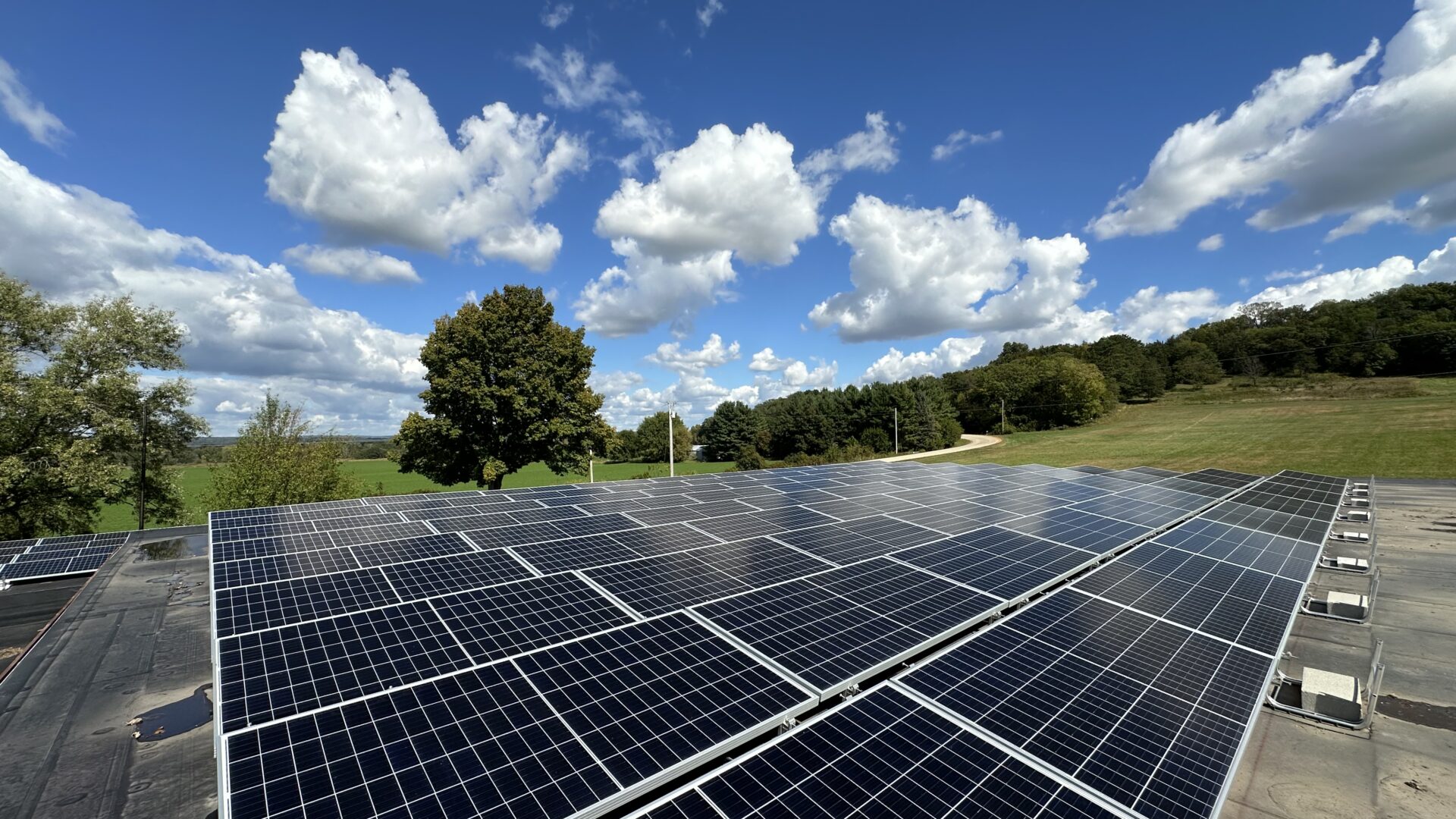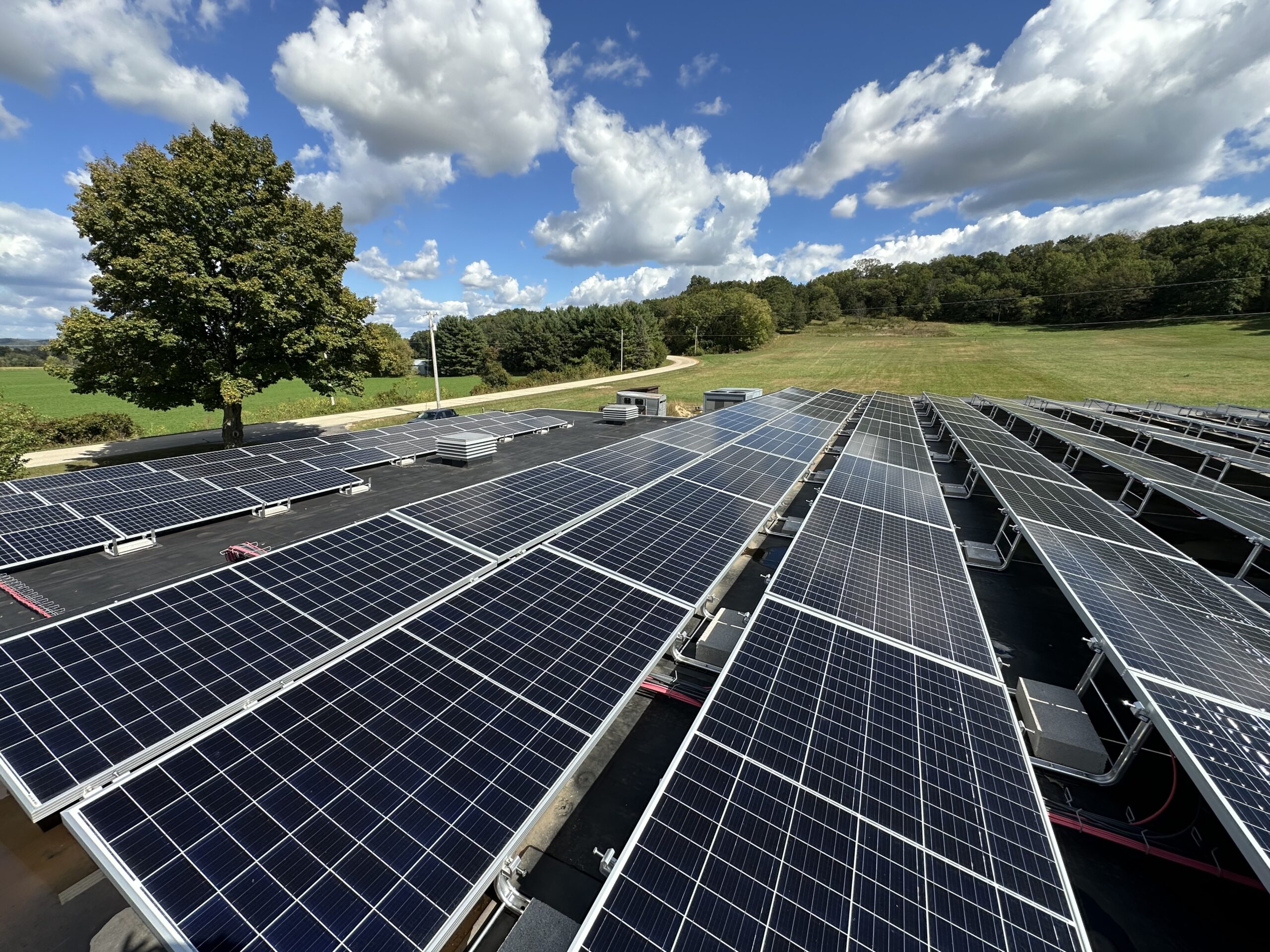Carisolo Grinding Service – WI
- IRA,
- Stories

Wisconsin small-business grinds down energy bills
Carisolo Grinding Service in Sauk City, Wisconsin, has been sharpening knives for home cooks and commercial kitchens across the Midwest since 1980. Mike Maestri, a fourth-generation knife grinder, now runs the business with his siblings, carrying on the family tradition. Seven years ago, Carisolo relocated their operation to a former elementary school. The new facility offered expanded room to operate, yet also increased their monthly energy bills. In 2024, they went solar to reduce fixed costs and create financial stability for their small business.
After setting up the shop in the new facility, they quickly got a sense of the building’s energy demands. Even when the machinery wasn’t running, energy use stayed high. “Especially during the summer months — cooling the entire building — it got pretty expensive,” said Mike, who had considered going solar since the relocation. With their enormous, flat roof Carisolo was well suited to becoming their own source of power, but the upfront costs were an obstacle.

The feasibility of solar as a solution to rising utility costs got a major boost when Mike learned that the Inflation Reduction Act (IRA) had increased the solar Investment Tax Credit (ITC) to 30%. “That got me looking into it because that, by itself, seemed like it was definitely going to be a major incentive,” he said. “As I continued to look into it, there [was] a REAP grant available through the USDA, and at the time it was going to be 40% of the total cost of the system.”
Through the Rural Energy for America Program (REAP), rural businesses like Carisolo can receive grant funding for renewable energy and efficiency projects. As a federal program, REAP was also expanded by the IRA in 2022. Mike was seriously considering going solar, knowing he could save 30% through the ITC. Learning he could reduce his upfront costs by another 40% “made it a no-brainer,” he said. The business also received a 4% Focus on Energy grant from the state of Wisconsin.
Empowered by these incentives, the business installed a 50-kilowatt (kW) solar array at an initial cost of $134,000. The federal and state support they received saved them about $80,000. Mike expects the system to cover nearly all of the energy needs and cut their monthly energy bill by about $1,100, allowing them to pay off the installation within five years.
The security that solar now provides has eased the strain on Carisolo’s operating budget, giving them more flexibility in managing the business—whether it’s ordering additional inventory or offering raises to employees. With lower energy costs, Carisolo can focus on growth and invest more confidently in their team and operations.
Looking ahead, Mike sees potential to expand their system and upgrade to electric delivery vehicles they can charge on-site. For now, though, he’s grateful for the stability solar provides. “One of the benefits of this, largely, is it sustains us where we are,” he said. “We’re providing a product that at our current size we have a lot of control over.” For a small business focused on craftsmanship and customer service, this is imperative. Solar will help them maintain their standards and grow on their own terms by easing financial strain. “Not having to do a whole bunch more work and life being a little more affordable is awesome,” Mike reflected.
Carisolo’s experience highlights the tangible impact of the federal government’s investment in solar through the IRA. Solar helped the business reduce fixed costs, lower dependence on fossil fuels, and achieve greater financial stability, reflecting their values. “We support the idea of becoming a more energy-independent nation,” Mike shared.
Incentives like REAP and the ITC make those benefits accessible. Having experienced them firsthand, Mike would recommend solar to his fellow business owners: “If your power bill every month is actually making an impact on your finances at all, you should seriously consider it … especially if those incentives are still in place—holy cow, it’s worth it.”
The IRA restored and extended the ITC to 30% until 2032. The next deadline for rural businesses to apply for REAP funding is December 31, 2024. If you’d like to learn more about going solar and how you can take advantage of incentives, download SUN’s Go Solar guide.
Get the latest on solar straight to your inbox.
Fight for your solar rights.
Everyone has the right to go solar. Spread the sunshine nationwide and in your local community by taking action, joining events, and more.